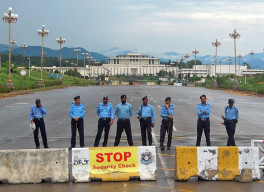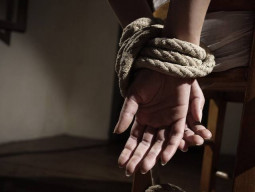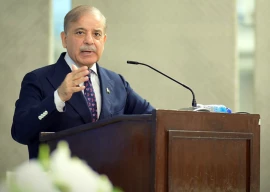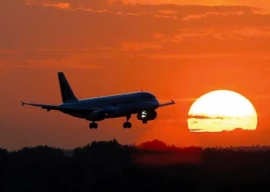
In its 676-page World Report 2012, the HRW said that targeted killings and other attacks on civilians by the Taliban and sectarian and ethnic militant groups, as well as killings of journalists, were commonplace during the year.
Security deteriorated dramatically throughout the country as a result of suicide bombings by the Taliban and affiliated groups. There was a dramatic increase in target killings in Balochistan, while 800 people were killed in often politically motivated violence in Karachi. Law enforcement authorities made little attempt to resolve enforced disappearances of terrorism suspects and opponents of the military.
“The past year was disastrous for human rights in Pakistan,” said Brad Adams, Asia director at HRW. “Bombs killed hundreds of civilians, advocates of religious tolerance were assassinated, and the military undermined democratic institutions. From Karachi to Quetta, Pakistan is teetering on the edge of becoming a military-run Potemkin democracy.”
In Pakistan, persecution and discrimination under cover of law against religious minorities and other vulnerable groups reached a zenith in 2011, HRW said. Freedom of belief and expression came under severe threat after the murders of former Punjab governor Salmaan Taseer and the federal minorities’ minister Shahbaz Bhatti over their public support for amending the country’s often abused blasphemy law. The government notably failed to provide protection to people threatened by extremists or hold the extremists accountable. Taseer’s self-confessed killer, Mumtaz Qadri, was convicted of murder, but the presiding judge had to flee the country amid fears for his safety.
Journalists, particularly those covering counterterrorism issues or who are perceived to be taking public positions against the military, faced unprecedented threats. At least ten journalists were killed in Pakistan during the year, including Saleem Shahzad. A judicial commission was formed to probe the murder but it failed to identify perpetrators in its findings released in January 2012.
“Unless Shahzad’s murderers are identified and held accountable, media freedoms will decline even further in Pakistan as journalists operate in fear for their lives,” Adams said. “The government needs to bring charges wherever the trail leads.”
The group also criticised the US for carrying out about 75 aerial drone strikes during 2011 on suspected al Qaeda and Taliban members near Pakistan’s border with Afghanistan. These strikes resulted in claims of large numbers of civilian casualties, but lack of access to conflict areas has prevented independent verification.
COMMENTS (8)
Comments are moderated and generally will be posted if they are on-topic and not abusive.
For more information, please see our Comments FAQ

















@Roflcopter: "How exactly is our army appeasing militants?" The headline does not say the army appeased militants. It says Pakistan appeased militants. Please read the 676 page report to see specific instances highlighted in it. But even without reading the report, allowing Qadri supporters to intimidate the judge, keeping silent after Taseer was murered, keeping quiet when Ahmadis were being persecuted, keeping quiet when goondas went into a girls school near Rawalpindi/Islamabad and beat up girls for not wearing burqas, keeping quiet when Hafiz Saied goes around making hate speeches, allowing JeM to restart fund raising (which had been shutdown by Musharraf) - these are all examples of Pakistan appeasing militants.
@Pakistan Jeevay: "Yea, but persecution of religious minorities did not reach its zenith when niqab was banned in Canada" First of all niqab is not banned in Canada. Niqab is only banned during the oath taking ceremony for citizenship were they need to nesure that the person taking the oath and the one whose photo they have is the same. Secondly EVEN if niqab were banned outright in Canada (which it is not) - people breaking that law would not sentenced to death - they would probably just have been fined. To compare it with actually killing people simply by acusing them of blasphemy or to kill Hazaras only because they are Shias or to declare Ahmadis Wajab-ul-qatl is completely incomparable to the Canda action.
Please do nto establish false equivalence.
@Roflcopter:
HRW also condemned the US for the drone strikes as mentioned at the end of the article.
Give it a rest with the anti-West accusation against HRW simply because it doesn't favour your unquestionable pro-Pak army bias, whom have many times inexplicably decided to hold talks even with the likes of TTP members.
HRW have gone after the US on human rights abuses in Pak more times than any sitting Pakistani official.
@Pakistani Jeevay: Right, because banning niqab is as bad as the persecution being carried out by Pakistani army.
How exactly is our army appeasing militants? ET should refrain from publishing propaganda by groups like HRW which clearly toe the line of US.
one country's strategic asset is other country's terrorist.
Appeasing militant groups is not something your military is suppose to condone let alone sponsor - may help explain why your allies haven't trusted your military.
Yea, but persecution of religious minorities did not reach its zenith when niqab was banned in Canada.